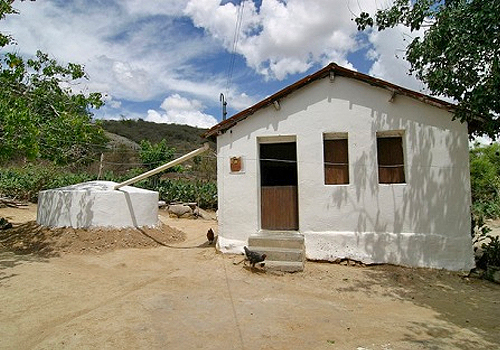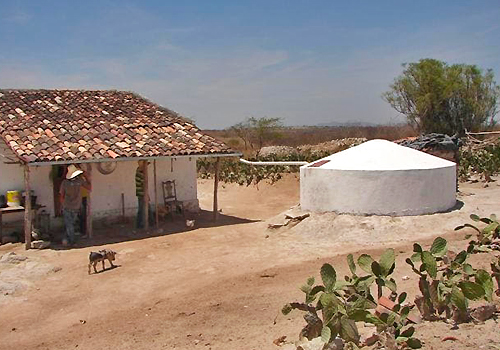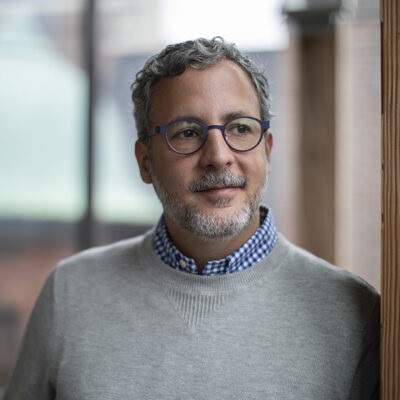In theory, citizens hold enormous power in a democracy: they alone are responsible for electing the politicians they believe will best serve their needs.
But as the history of democracy shows, politicians have often found ways to ensure their own needs take precedence over those of their constituents. One way of doing this is clientelism — a practice where citizens are offered private goods or services in contingent exchange for their electoral support.
“Politicians around the world promise things in order to get elected,” says Simeon Nichter, associate professor in the Department of Political Science at the University of California, San Diego. “But in some countries, whether you get your welfare benefits doesn’t depend on some political act that you as an individual took — such as whether you voted for a particular candidate. In many countries, however, that’s not the case. Instead, politicians provide citizens with benefits in direct exchange for their political support.”
Citizens in clientelist relationships may immediately get their needs for cash, building materials or water fulfilled. But in the long run, their needs and those of the community — for safe streets, good schools, and paved roads, for example — may remain unmet. Meanwhile, it is easy for clientelist politicians to stay in power since they have access to the public coffers, which they can tap to secure votes, thus providing them with an unfair advantage over any non-clientelistic challengers.

Countries often have laws in place to prevent this type of vote buying. But in younger democracies, such as those in Africa or Latin America, the practice is still common.
A recent paper published in the American Economic Review takes a penetrating look at why clientelism happens and suggests ways it could be stopped. The paper, entitled Vulnerability and Clientelism, was co-authored by a team of researchers including Gustavo Bobonis, professor in the Department of Economics in the Faculty of Arts & Science at the University of Toronto and Canada Research Chair in the Political Economy of Development. His co-authors include Nichter as well as Marco Gonzalez-Navarro and Paul Gertler, both based at the University of California, Berkeley.
The researchers hypothesized that when citizens feel economically secure, they are less likely to engage in clientelism. To test their hypothesis, they partnered with a local NGO to furnish a random group of water-insecure households across nine states in the semi-arid region of northeastern Brazil with cisterns to collect water from rainfall.
“Water scarcity and management is a very important issue in the area,” says Bobonis. “Developing the project, we learned about the problem, and how this is used by local officials to arrange relationships with voters that will give them a political advantage.”
The cisterns helped households accumulate rainwater, and store purchased water during the dry season. “There was variation across the states in the drought conditions that they experienced,” continues Bobonis. “And we were able to then document how people living with more or less severe drought conditions would differentially engage in these clientelist relationships with local officials and brokers to try to gain access to water, health care and other things.”

Dependent on water in a semi-arid region, the citizens were afflicted by poverty. This was aggravated by the fact that they never knew from year to year how, lacking a social safety net, they would afford basic services such as health care and education. The largely agricultural community is dependent for income on rainfall, the level of which varies from year to year.
It’s this precarity combined with poverty that generally stokes clientelism, says Nichter. “People have these ongoing relationships with politicians so that when adversity strikes — when they have a drought or a sudden illness in the family — they have a politician to turn to.”
However, in the run-up to local elections in 2012, evidence showed that the water cisterns provided voters with enough security that they did not feel the need to pursue these arrangements and promise to vote for clientelist politicians. In fact, an examination of disaggregated voting outcomes revealed that the cisterns treatment reduced the likelihood of voting for incumbent politicians by a substantial 10 percentage points.
What’s remarkable here is that though voters equipped with cisterns had many other pressing needs beside water — medicines, food and building materials being some examples — they still did not vote for incumbent politicians. This suggests that even when their vulnerability was only partially relieved, it had a noticeable effect on the actions they took at the polls.
Though clientelism has been studied before, Vulnerability and Clientelism is unique in its breadth; citizen relationships with politicians were not only surveyed prior to and during the election period, but much later as well.

“We were able to monitor these households over time to understand how these interactions with politicians take place over the whole electoral campaign period,” says Bobonis. “We also followed individuals from 2011 to 2014 to understand their thinking outside of the electoral campaign period. Then we were able to interview them a year after the election and ask, ‘what’s your relationship with a local politician at this moment?’ It’s unusual that we were able to do that in a systematic way.”
The team of researchers was put together by Gertler and Gonzalez-Navarro, who says the group is continuing to study the roots of corruption in democracies. “Right now we’re finishing up a study based on our survey data,” he adds. “We’re measuring the effectiveness of another program in Brazil, which consisted of municipal anti-corruption audits.” In this program, government auditors were deployed to ensure that federal transfers were being spent appropriately by local politicians.
“It turns out that in municipalities that had been audited, citizens were much more likely to say that they were promised something but it wasn’t delivered,” says Gonzalez-Navarro. “So the audit appeared to make it harder for politicians to deliver private goods, and it broke these clientelist ties.”
Bobonis says the team’s work identifies reforms that could point the way toward the reduction of corrupt practices such as clientelism. “Improving the social safety net, and other measures to constrain how politicians use public funds, could be ways to reduce electoral advantages that politicians have because of access to these resources,” he says.

